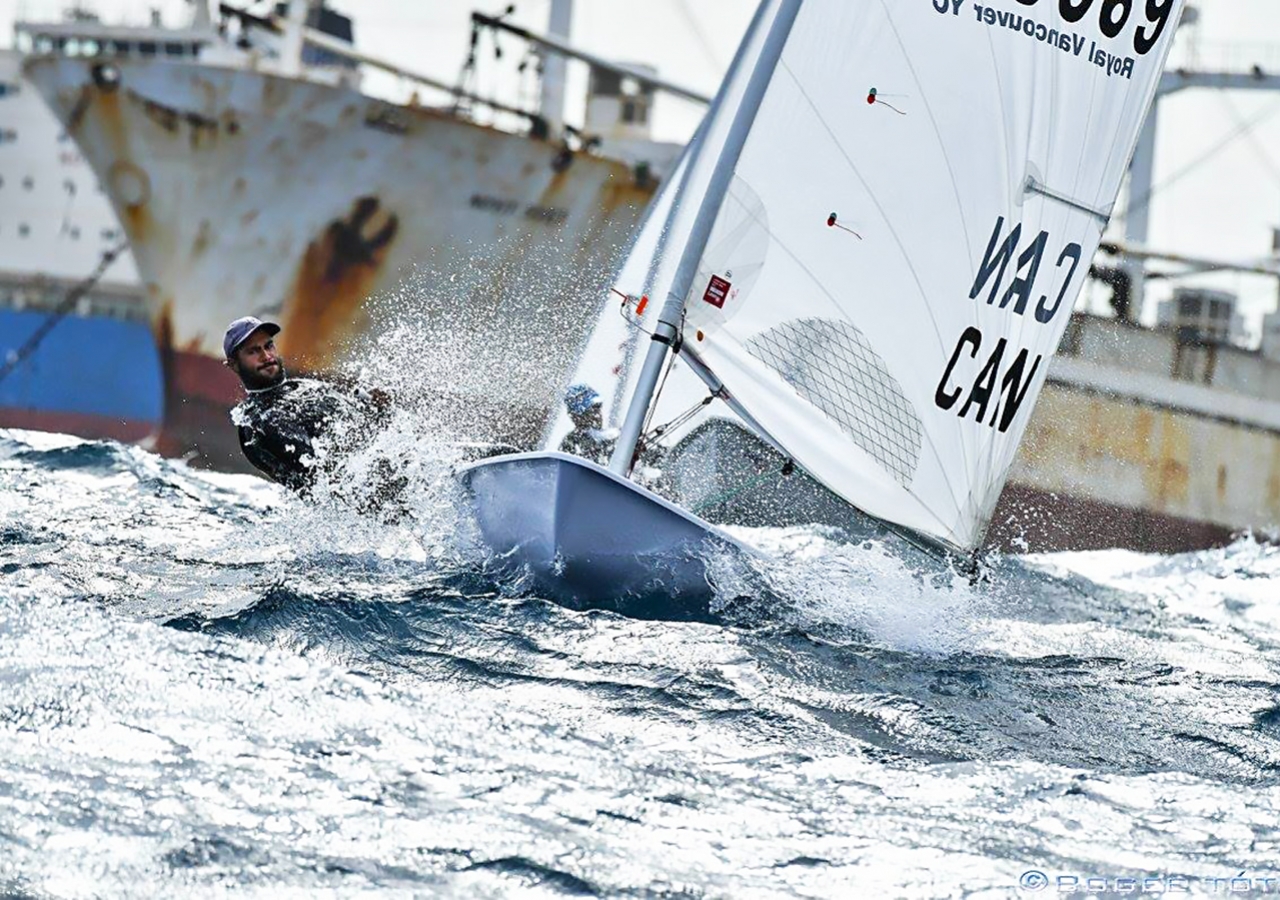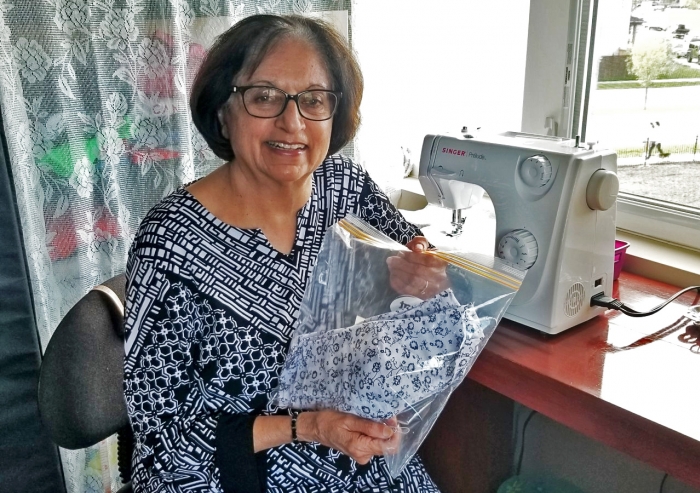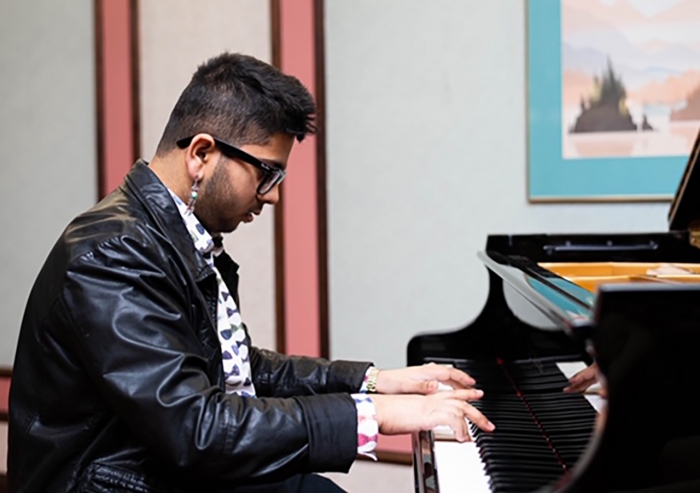If everything falls into place, Vancouver’s Fillah Karim will don the country’s red and white colours to take on the world’s best in the discipline known as Laser sailing in Tokyo.
In order for that to happen, Karim will first have to help Canada qualify, as only 35 countries have the chance to compete at the Olympics. The next two opportunities to do this will be at the World Championships in Japan in July 2019, and then at the Pan American Games in Peru a month later.
To date, the 21-year-old’s best performance at an international competition was a fourth place finish at the North American Championships in 2017. He also placed 15th in the world in the under-21 championships that year.
A family of athletes
Karim has sports in his genes. His brother Zia played varsity volleyball at the University of Toronto and his sister Safiya plays competitive beach volleyball. Zia, Safiya, and his parents Amin and Nermin all played volleyball for Canada at the Jubilee Games in Dubai.
Growing up in such a sports-oriented family, Fillah set his sights on the Olympics at a young age. He tried kayaking, skiing, and volleyball, but none of them were right for him. Then, at age 12, he entered a summer training camp at the Hollyburn Sailing Club in West Vancouver.
That’s where his pursuit of the sport began.
“I chose to join the race team in the fall, and within two weeks, I felt, ‘This is it. I’m going all the way in this sport,’” remembers Karim.
“I totally fell in love with sailing.”
A childhood filled with competition
Karim was in grade seven when he quit all his other sports to pursue sailing full time.
“From there I set my sights on the 2020 Olympics,” he says.
Any athlete will attest, competing at a sport on an international level is a full-time job. For a kid in high school, it takes an intense amount of commitment and dedication. It also requires supportive parents. Karim explains that the one requirement his parents had for him was to keep his grades up.
“It was an ongoing battle throughout my high school years,” Karim explains.
“In the end I was able to satisfy them because I did well in school. I graduated with straight As so there wasn’t a lot they could say.”
By Karim’s grade 12 year, he had to find a school that would be flexible so he could train – he attended about 50 percent of his classes that year. He believes his desire to continue sailing forced him to learn how to manage his time effectively.
“I didn’t spend as much time messing around,” says Karim, comparing his childhood to that of his friends. “I had to stay on top of my school work.”
The challenges of sailing in Canada
Given the climate in Canada, sailing is by no means a mainstream sport in the country. Because of this, the sport has taken Karim all over the world.
“When I was 16, people said good sailors are training in Florida over the winter,” says Karim.
“I went to Florida and just kind of showed up. I remember at the time the national team coach couldn’t believe that there was a 16-year old training on the water by himself in the middle of winter when everyone’s in school.”
Over the years, Karim has trained in Croatia, Slovenia, Germany, Belgium, France, Italy, Spain, and Denmark. Europe is a hub for sailors because of the water and weather.
Today, he is still finding his own path in the sport. He has created a personalized training program with a coach in France.
One of the biggest challenges Karim constantly faces is finding funding for his training.
Karim explains that Canada provides a small stipend on top of the set amount his parents and other donors have agreed to pledge, but he is still about $50,000 short of his fundraising goal.
Lessons learned through sports
Whatever happens in Karim’s life over the next couple of years – if he makes it to the Olympics or not - he is happy with what competitive sailing has taught him in life so far.
“It’s how to deal with failure, how to continue to push forward,” Karim explains. And despite having no social life – his words – growing up, he wouldn’t do it any differently.
“There’ve been a lot of challenges in the journey, but it’s pushed me to develop in so many different ways, so I don’t regret any of the sacrifices or any of the decisions.”
With that focused attitude, he hopes to take Ismailis and Canadians along for the race as he competes with the best in the world.








